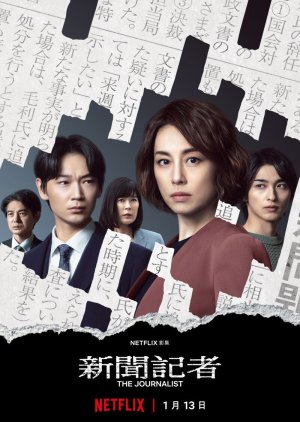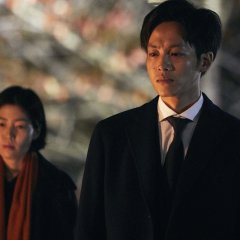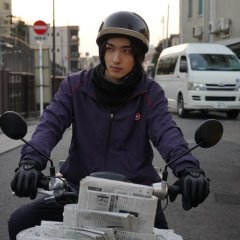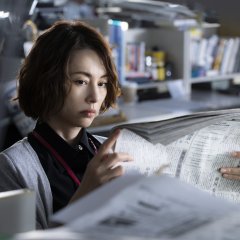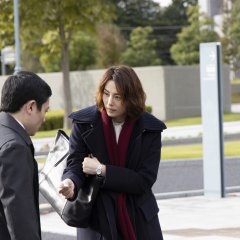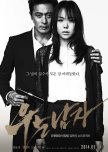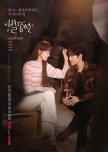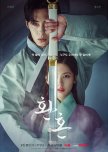 Noodle Cart September 2020
Noodle Cart September 2020 Matsuda Anna is a dedicated journalist who doggedly pursues the truth about a government corruption scandal even as powerful enemies seek to neutralize her reporting. (Source: Netflix) ~~ Loosely adapted from the novel "Shinbun Kisha" (新聞記者) by Mochizuki Isoko (望月衣塑子). Edit Translation
- English
- 中文(台灣)
- Arabic
- Français
- Native Title: 新聞記者
- Also Known As: The Journalist , Newspaper Reporter , しんぶんきしゃ
- Director: Fujii Michihito
- Screenwriter: Yamada Yoshitatsu, Kodera Kazuhisa
- Genres: Thriller, Drama, Political
Where to Watch Shinbun Kisha
Subscription (sub)
Cast & Credits
- Yonekura Ryoko Main Role
- Ayano GoMurakami ShinichiSupport Role
- Yokohama RyuseiKinoshita RyoSupport Role
- Yoshioka HidetakaSuzuki KazuyaSupport Role
- Terajima ShinobuSuzuki MayumiSupport Role
- Yusuke SantamariaToyoda ShinjiroSupport Role
Reviews

A voice for the voiceless
An engrossing political thriller that manages a fine balance between human drama and suspense. Reflecting our world where it often seems as though corruption and misinformation are the order of the day, Shinbun Kisha lays out a David and Goliath tale of ordinary citizens standing against government corruption. While the inciting incident might seem small, that’s exactly what the drama tries to highlight; if society remains apathetic to the “small” corruptions, what will the powers that be try to get away with next? It also hits back against the pervasive thought that one person couldn’t possibly make a difference when it comes to political change. After all, we never know what our actions might inspire in others.Some may find early episodes slow, although I felt they did a good job establishing the broad strokes of the story and characters. In later episodes, however, there were some places where the story struggled to keep pace or stumbled over minutiae; the overall quality of the episodes was undiminished, but I sometimes wondered if a scene wouldn’t have been better placed elsewhere or even cut entirely. This was often the case with scenes that included Mayu, who could feel superfluous despite her early involvement in the development of another character.
That said, I found it difficult not to binge Shinbun Kisha. Since it often seems to mirror real life, the plot somehow appeals to the audience’s sense of justice. The characters are relatable for the same reason and win sympathy easily. Like any good story, Shinbun Kisha made me want to know more—but even beyond that, I needed to know if justice would actually be served. It was difficult not to get invested.
The camera is unobtrusive, yet still impactful. For example, during the press conferences where Yonekura Ryoko’s Matsuda is the only one brave enough to drill the administration for answers, she’s literally seated alone with a block of empty chairs surrounding her. Sickly greens and yellows are employed in sequences when corrupt dealings are underway, and chilly blues overlay rooms in which a character has been driven into a corner or frozen out.
Yonekura Ryoko and Go Ayano, perhaps unsurprisingly, are clear standouts in terms of performance. However, Yokohama Ryusei turns in a solid performance as an indifferent youth who slowly begins to understand the power that young people have in shaping the future of a country.
Recommended overall, especially if you like this genre. I'd love to see more like this from Netflix.
Was this review helpful to you?

Is This A Drama Series Worth Investigating?
Loosely based upon the real-life exploits of Tokyo Shimbun reporter Isoko Mochizuki, director Fujii Michihito’s drama ‘ The Journalist’, is adapted in-turn from his 2019 shared-titled feature-film. The Netflix six-part drama offered a golden-opportunity to the director in order to “flesh-out” weaker moments from his original work by offering viewers a vivid vignette of the world of corruption and journalism. Yet despite a brilliant performance by actress Ryoko Yonekura , Yamada Yoshitatsu and Kodera Kazuhisa’s sultry and harrowing storytelling could feel somewhat niche by the second-half.
The storyline focused upon highly-revered and inquisitive journalist Anna Matsuda ( Ryoko Yonekura). When confronted with the shady dealings of a political crime at the heart of Japanese society, Matsuda alongside cynical government official Shinichi Murakami (Go Ayano), guilt-stricken bureaucrat Suzuki Kazuya (Hidetaka Yoshioka),Kazuya’s wife , Mayumi (Shinobu Terajima), and university student Ryo (Ryusei Yokohama), find themselves fighting against a common enemy through Shinjiro Toyoda (Yusuke Santamaria); a PR specialist and official adviser to the prime minister.
Perhaps one of the greatest takeaways from ‘ The Journalist’ came through raising ethical and moral questions towards the universal problem of corruption; especially at the top of worldwide governments. However whilst the series did allow food for thought for its audience, it is noteworthy to point out that no trope or cliche is left upturned in Yamada Yoshitatsu and Kodera Kazuhisa’s screenplay for the reboot. Whilst an artistic licence does allow influences from similar storylines and productions to worm into the series in parts, ‘ The Journalist’ ‘s regimented paper trail to corruption led to some tedious and over-stretched moments throughout. Dialogue , interactions and Matsuda scrolling over documents for a torturously long period onscreen against suddenly falling asleep on her desk and then repeat, could often feel as though the series was trying to heavily pound the insertion of “the devil being in the details” rather than expediting certain events of the storyline.
‘ The Journalist’ is admittedly self-conscious from the outset. Rather than allowing the series to spiral into an over-the-top parody of conspiracy theories and rushed plot, the miniseries allowed itself to be compacted into six episodes. Yet whilst elements of the series’ appeal with Yonekura and Terajima taking frontal stage did begin to make the series feel as though it was a reconstructed reenactment , the actual focal point of the series, the corruption, was rarely covered. Instead, whilst the series did offer opportunities to present the climatic buildup of events and revelations, the brushed over and lingering presence of the main plot drive created an addictive yet slightly farcical edge during later scenes also.
Nevertheless,Fujii Michihito’s return to the director’s chair did certainly present its perks also. Respectfully choosing TV veteran Ryoko Yonekura instead of her movie counterpart South Korean actress Shim Eun-kyung, allowed golden-opportunities to explore the emotional, sentient and conventional range of the main female lead. ( Even if hard-nosed Anna can coincide her psychic ability to arrive at people’s doorsteps just at the right moment.) In addition to this Fuji combined a heavily aesthetic approach to the series- artistic cuts and editing combined with a nail-biting score did deliver a tense atmosphere for viewers. However, the second-half delivered a somewhat languid finale for the series with slower pacing attempting to slow down and make viewers take-in the storyline, but slowly becoming somewhat tiresome and repetitive.
Fujii Michihito’s ‘ The Journalist’ did present a necessary revamp in parts in comparison to its movie counterpart . The six-part series delved into relatable and harrowing issues striking a chord for viewers worldwide . Yet whilst Fujii Michihito’s moody cinematography and in particular Ryoko Yonekura’s brilliant acting did keep viewers intrigued and enticed, niche storytelling and archetypes could make ‘ The Journalist’ feel slightly cyclical and dragged out in parts also.
Was this review helpful to you?

